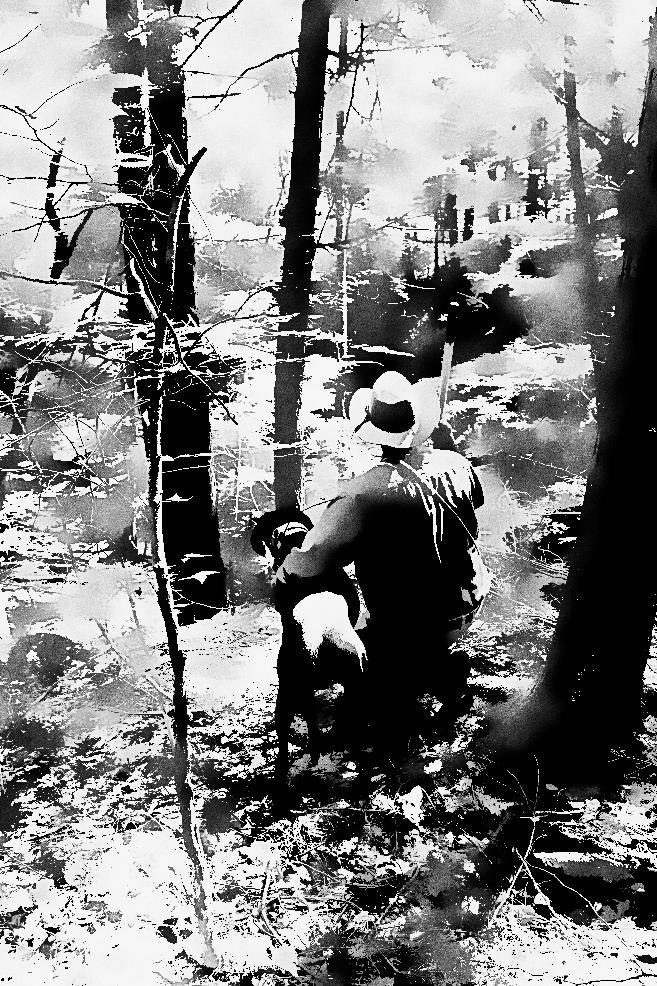Glenn Sapir:
outdoorsmen, conservationist, Editor, author
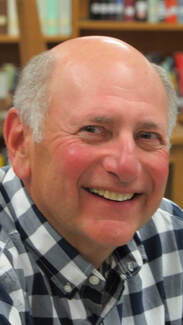
Editorial comment: When you look at Glenn's pedigree in the outdoor writing--publishing with and working for the leading outdoor magazines in the U.S.--awards, and conservation efforts, you quickly realize few, if any, have ever reached the pinnacle of success Glenn can claim. Not only are his books well-researched, chockful of great advice and information from himself and other experts (I challenge anyone to say they didn't learn something from Glenn's books), his books are simply exquisitely crafted--from the prose to the beautiful pictures.
With all of Glenn's experience, I would be crazy not to ask his advice about the writing industry and what advice he has for upcoming authors. Note: what follows is a truncated, "web-version" of Glenn's responses. For the full interview, you can go to my blog or ask for the free Ryland Creek e-newsletters (Glenn's interview spans two issues) with the entire interview posted there.
With all of Glenn's experience, I would be crazy not to ask his advice about the writing industry and what advice he has for upcoming authors. Note: what follows is a truncated, "web-version" of Glenn's responses. For the full interview, you can go to my blog or ask for the free Ryland Creek e-newsletters (Glenn's interview spans two issues) with the entire interview posted there.
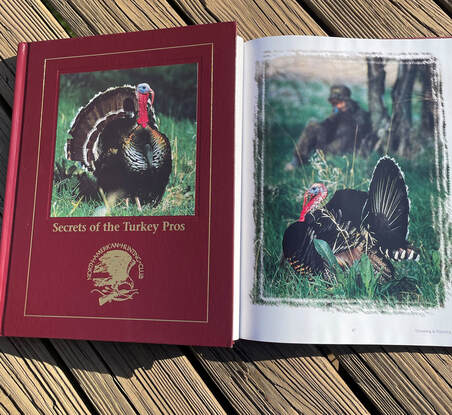
You have decades of experience in the writing industry. What were your different roles in the writing business?
In fact, I am into my sixth decade of work in publishing. My very first job after graduation from SUNY Albany (or Albany State back then) as Assistant Editor at Outdoor Life Magazine, a large-circulation, venerable publication for sportsmen. Though I graduated with the ambition of being a jock-sports writer, that first job steered my entire career. Since that entry level job at Outdoor Life, which entailed editorial production as well as manuscript evaluation, copy editing and writing short items, I have held editorial positions with several publications. From Outdoor Life, I moved on to Sports Afield, another member of the “Big Three” of outdoor magazines, where, as Associate Editor, I primarily copyedited contributors’ manuscripts and made my first field trip, representing the magazine on a junket for a few outdoor communicators.
On that trip, I got to fish for giant largemouth bass, meet a few other writers and editors, and become exposed to the world of public relations for Johnson and Sons, the wax people, who were promoting their recent acquisitions that put the company in the fishing tackle industry.
After a short stint at Sports Afield, I was recruited by Field & Stream magazine, the leader of the Big Three, where I spent 18 years in a variety of capacities. It was there where I feel I matured as an editor and writer. If there were an aspect of a magazine editor’s job, I did it. That meant copy editing, photography, writing features, traveling and representing the magazine on assignments and at writer organization conferences and, early on, even cutting and pasting overrun of articles the old-fashioned way.
In fact, I am into my sixth decade of work in publishing. My very first job after graduation from SUNY Albany (or Albany State back then) as Assistant Editor at Outdoor Life Magazine, a large-circulation, venerable publication for sportsmen. Though I graduated with the ambition of being a jock-sports writer, that first job steered my entire career. Since that entry level job at Outdoor Life, which entailed editorial production as well as manuscript evaluation, copy editing and writing short items, I have held editorial positions with several publications. From Outdoor Life, I moved on to Sports Afield, another member of the “Big Three” of outdoor magazines, where, as Associate Editor, I primarily copyedited contributors’ manuscripts and made my first field trip, representing the magazine on a junket for a few outdoor communicators.
On that trip, I got to fish for giant largemouth bass, meet a few other writers and editors, and become exposed to the world of public relations for Johnson and Sons, the wax people, who were promoting their recent acquisitions that put the company in the fishing tackle industry.
After a short stint at Sports Afield, I was recruited by Field & Stream magazine, the leader of the Big Three, where I spent 18 years in a variety of capacities. It was there where I feel I matured as an editor and writer. If there were an aspect of a magazine editor’s job, I did it. That meant copy editing, photography, writing features, traveling and representing the magazine on assignments and at writer organization conferences and, early on, even cutting and pasting overrun of articles the old-fashioned way.
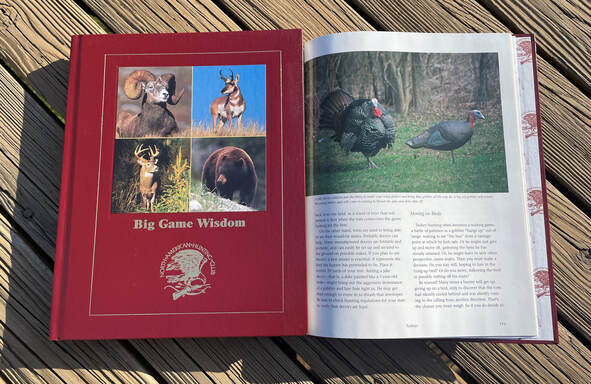
What advice would you give a struggling writer, who may be wondering if the writer’s path is the
right path?
First, I would be pragmatic. Writing is a tough way to make a living—and a wonderful way to supplement your income. Writing doesn’t have to be a full-time job. Don’t ignore other professional opportunities because you want to be a writer. You can be both. If you have a paycheck coming in from another source, that “struggle” to be a writer won’t be so stressful.
Second, I would emphasize that writing is a craft. Perhaps some people are born with the gift of writing. I wasn’t. I read a lot—inside and outside my outdoor field. I consciously and subconsciously learned from others. I tried to become aware of all possible markets, tried to familiarize myself with them and their content, and then crafted my queries to what I thought were appropriate.
In my day, that meant browsing magazine stands and reading Writer’s Market.
Today, Barnes and Noble might be your best bet for newsstands research.
right path?
First, I would be pragmatic. Writing is a tough way to make a living—and a wonderful way to supplement your income. Writing doesn’t have to be a full-time job. Don’t ignore other professional opportunities because you want to be a writer. You can be both. If you have a paycheck coming in from another source, that “struggle” to be a writer won’t be so stressful.
Second, I would emphasize that writing is a craft. Perhaps some people are born with the gift of writing. I wasn’t. I read a lot—inside and outside my outdoor field. I consciously and subconsciously learned from others. I tried to become aware of all possible markets, tried to familiarize myself with them and their content, and then crafted my queries to what I thought were appropriate.
In my day, that meant browsing magazine stands and reading Writer’s Market.
Today, Barnes and Noble might be your best bet for newsstands research.
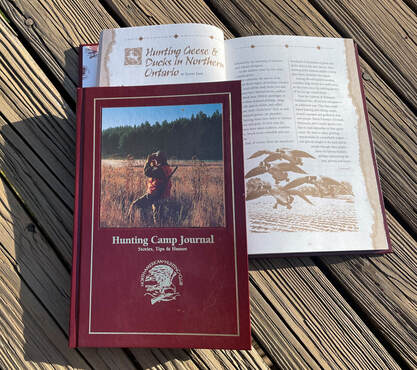
Third, join groups, both professional and amateur. Libraries often form writer circles, where aspiring and accomplished writers can meet, exchange ideas, even critique each other’s work. For me, I credit my active involvement in the Outdoor Writers Association of America, the New York Outdoor Writers Association, and the New York Metropolitan Press Association for gaining exposure among not only writers but editors and industry.
Those contacts opened many doors for me. Just like the piano player in the bar who is as talented as Billy Joel, the difference between appearing at Joe’s Tavern and Madison Square Garden can sometimes be exposure and breaks.
It is up to you, to a great extent, to get active and help create the opportunity for those breaks to come your way.
Those contacts opened many doors for me. Just like the piano player in the bar who is as talented as Billy Joel, the difference between appearing at Joe’s Tavern and Madison Square Garden can sometimes be exposure and breaks.
It is up to you, to a great extent, to get active and help create the opportunity for those breaks to come your way.
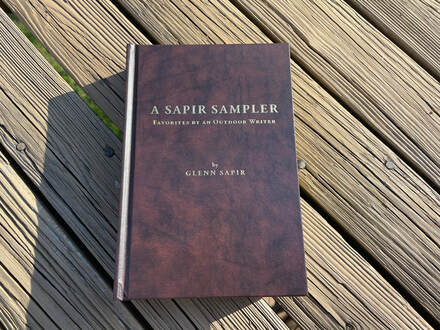
Author bio: Glenn Sapir is a veteran outdoor communicator and a lifelong resident of New York State. He has written thousands of newspaper and magazine articles and authored and/or edited several books.
His most recent book is, A Sapir Sampler: Favorites by an Outdoor Writer, a collection of 166 of his published magazine and newspaper articles and one article never before published.
For information on purchasing Glenn's books (see list below), contact Glenn at [email protected].
Secrets of the Turkey Pros
Hunting Camp Journal
A Sapir Sampler
Big Game Wisdom
His most recent book is, A Sapir Sampler: Favorites by an Outdoor Writer, a collection of 166 of his published magazine and newspaper articles and one article never before published.
For information on purchasing Glenn's books (see list below), contact Glenn at [email protected].
Secrets of the Turkey Pros
Hunting Camp Journal
A Sapir Sampler
Big Game Wisdom
